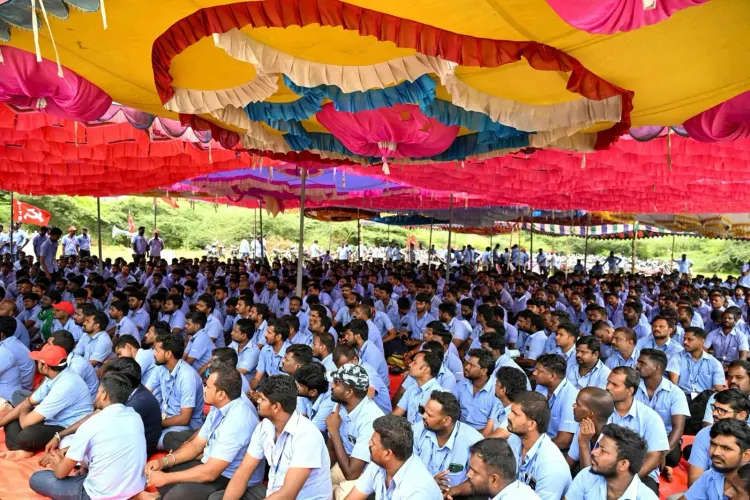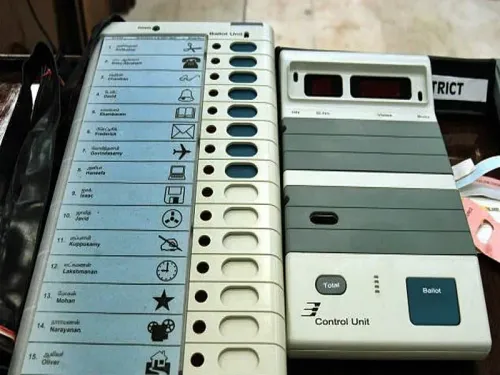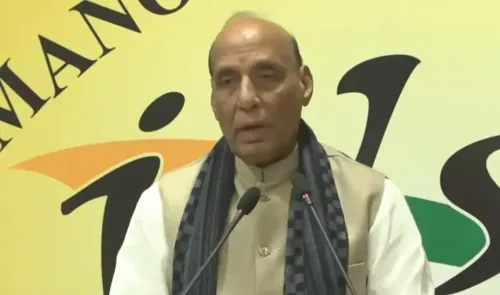Are Samsung India Workers Protesting Against Management Practices?

Synopsis
Key Takeaways
- Protests include a hunger strike on May 13.
- Rally planned for May 14 with black badges.
- Demonstration on May 16 highlighting illegal practices.
- Petition to South Korean Embassy on May 19.
- Union seeks immediate resolution and reinstatement of members.
Chennai, May 7 (NationPress) The Samsung India Workers’ Union (SIWU), in association with the Centre of Indian Trade Unions (CITU), has declared an upcoming series of protests, featuring a one-day hunger strike on May 13. This action aims to challenge what the union deems as anti-labour practices by Samsung India’s administration.
According to a statement from SIWU president and CITU Kancheepuram district secretary E. Muthukumar, the union has decided to escalate its protests after a meeting convened on Sunday.
The union has voiced strong objections against the company’s alleged practice of granting salary increases selectively to employees who have signed contracts facilitated by a management-supported faction, thereby excluding other workers.
As part of their protest strategy, employees will engage in a one-day hunger strike on May 13. This will be succeeded by a rally in Kancheepuram on May 14, where participants will don black badges and present a petition to the Kancheepuram District Collector, seeking intervention.
In a further escalation of their advocacy, the union has scheduled a demonstration outside the Directorate of Industrial Safety and Health in Guindy on May 16. This protest is intended to highlight what the union claims to be illegal production practices occurring at Samsung India’s manufacturing site.
On May 19, the union plans to submit a collective petition to the South Korean Embassy in New Delhi, requesting diplomatic intervention regarding what they describe as persistent violations of Indian labour regulations and the infringement of trade union rights.
Additionally, a formal complaint will be filed with the National Human Rights Commission, citing alleged human rights violations at the company’s facility.
Muthukumar urged Samsung India’s management to initiate direct discussions with the CITU-affiliated union or work towards consensus on critical issues, including wage adjustments and general concerns.
He also called for the immediate reinstatement of 25 union office-bearers and members who have been suspended, along with the rescission of all punitive measures taken against them. The union leader appealed to the state government and the labour department to step in and facilitate a fair resolution to the ongoing dispute.









